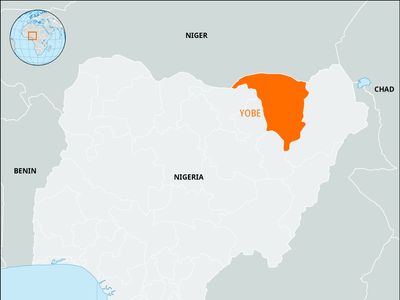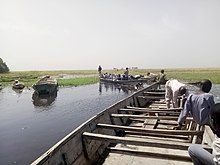Yobe State
States Jan 04, 2025

Table of Contents
Introduction to Yobe State, Nigeria
Yobe State, located in northeastern Nigeria, is a region rich in history, culture, and natural beauty. Established on August 27, 1991, it was carved out of Borno State. The state has since grown to become a significant part of Nigeria’s socio-economic and cultural landscape.
Geography and Location

Yobe State is bordered by Borno State to the east, Gombe State to the south, Bauchi State to the southwest, and Jigawa State to the west. It also shares an international border with the Republic of Niger to the north. The state covers an area of approximately 45,502 square kilometers, making it one of the larger states in Nigeria.
The geography of Yobe State is dominated by semi-arid landscapes, characterized by savannah vegetation, sand dunes, and sparse trees. It is part of the Sahel region, which experiences a hot and dry climate for most of the year.
Historical Background

The area now known as Yobe State has a rich historical heritage stemming from its connection to ancient civilizations such as the Kanem-Bornu Empire. This empire, which thrived for centuries, played a significant role in trans-Saharan trade and the spread of Islam in the region.
Many communities in Yobe trace their ancestry to these early civilizations, and the influence of Kanem-Bornu is evident in the culture, language, and traditions of the people. The region also served as a melting pot for various ethnic groups and traders, fostering a unique blend of cultures.
People and Culture

Yobe State is home to diverse ethnic groups, including the Kanuri, Fulani, Bolewa, Ngizim, and Karai-Karai, among others. The Kanuri are the dominant ethnic group and have greatly influenced the cultural and linguistic makeup of the state.
The people of Yobe are known for their warm hospitality, traditional attire, and vibrant festivals. The state’s cultural practices are deeply rooted in Islamic traditions, with many communities celebrating religious and social events like Eid and traditional weddings with great enthusiasm.
Economic Activities
[generated_post_image_4]
Agriculture is the backbone of Yobe State’s economy. The state is a major producer of crops such as millet, sorghum, maize, and groundnuts. Livestock farming is also prevalent, with cattle, sheep, and goats being reared in large numbers.
In addition to agriculture, Yobe is rich in natural resources, including gypsum, limestone, and kaolin. These resources hold significant potential for industrial development in the state.
Tourist Attractions
Yobe State boasts several attractions that appeal to history enthusiasts and nature lovers alike. The Bula Tura Oases, located in the Yusufari area, are a stunning natural wonder in the desert landscape. These oases provide a serene escape and are a testament to the state’s unique geography.
Another noteworthy site is the Dagona Waterfowl Sanctuary, a haven for birdwatchers and wildlife enthusiasts. This sanctuary is part of the Chad Basin National Park and is home to a variety of migratory birds and other wildlife.
For those interested in history, the remnants of ancient Kanem-Bornu settlements and artifacts provide a glimpse into the region’s illustrious past.
Challenges and Opportunities
Yobe State faces challenges such as desertification, limited infrastructure, and the impact of insurgency in the region. However, efforts are being made to address these issues through reforestation projects, improved security measures, and investments in infrastructure development.
With its rich culture, historical significance, and untapped natural resources, Yobe State holds immense potential for growth and development. By leveraging its strengths and addressing its challenges, the state can continue to thrive as a vital part of Nigeria.
Conclusion
Yobe State is a fascinating blend of history, culture, and natural beauty. From its ancient ties to the Kanem-Bornu Empire to its thriving agricultural economy, the state offers a rich tapestry of experiences for residents and visitors alike. Whether you’re exploring its historical landmarks, engaging with its vibrant communities, or enjoying its natural wonders, Yobe State remains a treasure trove of history and heritage in northeastern Nigeria.
